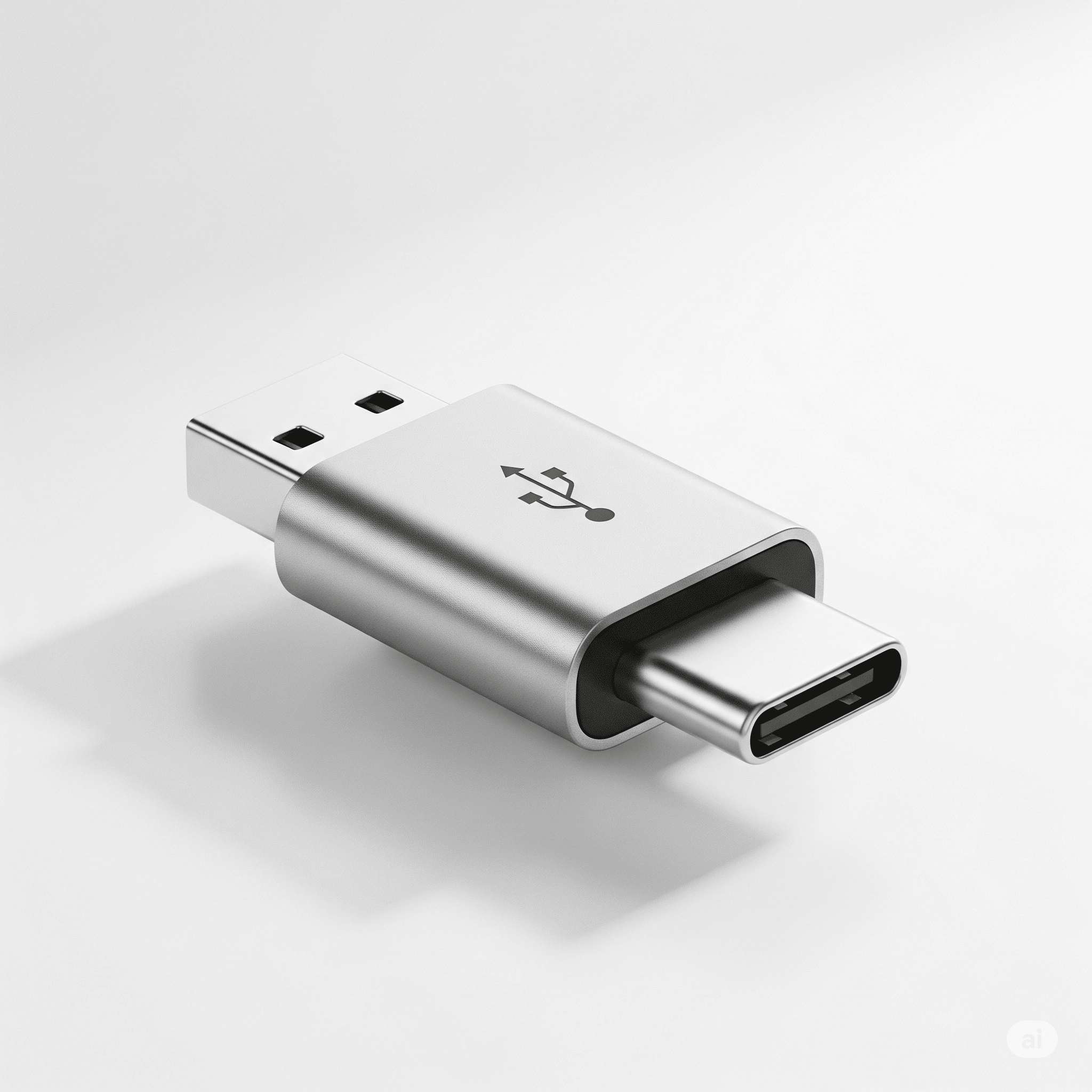Kingsgrove Branch:
USB-C to USB

USB-C to USB: Navigating the world of adapters can feel like a labyrinth, but this guide simplifies the process. From understanding the different types of connectors and their differences to assessing performance and power delivery, we'll break down the complexities and help you choose the perfect USB-C to USB adapter for your needs
Whether you're a tech enthusiast, a student, or a professional, this comprehensive overview will equip you with the knowledge to confidently select the right adapter, avoid compatibility issues, and maximize your data transfer and charging speeds
USB-C to USB Adapters: A Comprehensive Guide
USB-C has revolutionized connectivity, offering speed and versatility. But sometimes, you need to connect to older devices using a traditional USB port. This guide dives deep into USB-C to USB adapter, covering everything from their history and technical specs to choosing the right one and troubleshooting common problems
Introduction to USB-C to USB Adapters
USB-C, with its reversible design and versatile capabilities, has quickly become the standard for modern devices. Understanding its evolution and the differences between various USB connectors is crucial for choosing the right adapter
- A Brief History of USB-C: USB-C's journey began with the goal of simplifying connectivity. It evolved from earlier USB standards, offering faster data transfer rates and higher power delivery capabilities
- Different USB Connectors: USB connectors have a rich history, starting with the original USB 1.0 and continuing through USB 2.0, 3.0, 3.1, and 3.2. Each version has different physical dimensions and data transfer rates. Understanding these differences is vital for ensuring compatibility
- Advantages of USB-C to USB Adapters: These adapters enable you to connect USB-C devices to older USB ports, providing flexibility and bridging the gap between generations of technology.
- Disadvantages of USB-C to USB Adapters: Potential compatibility issues, slower data transfer rates compared to direct USB-C connections, and varying quality among adapters are possible downsides
- Use Cases for USB-C to USB Adapters: From connecting older peripherals to ensuring backward compatibility with legacy equipment, these adapters offer practical solutions in various scenarios
| Features | Price |
|---|---|
| Basic connectivity | Low |
| Faster data transfer | Medium |
| High-speed data transfer | High |
Technical Specifications and Compatibility, Usb c to usb
Understanding the technical specifications of USB-C and USB standards is crucial for ensuring compatibility and performance
- USB-C Specifications: USB-C has a standardized design that supports both data transfer and power delivery. Its versatility is one of its strengths
- USB Versions and Data Transfer Rates: Different USB versions offer varying data transfer rates, impacting the speed at which you can move files
- Power Delivery Capabilities: USB-C's power delivery capabilities exceed those of traditional USB, enabling faster charging and more powerful devices
- Compatibility Issues: Using the wrong adapter can lead to compatibility issues with certain devices, so careful consideration is key
May not support the highest speeds
Direct connection, often highest speeds
| Compatible USB Devices | |
|---|---|
| USB 3.0 and earlier devices | |
| Most modern USB-C devices |
Performance and Data Transfer
Data transfer speed is a key factor when choosing an adapter
- Transfer Rate Comparisons: Different adapters have different data transfer rates, depending on the USB version they support
- Factors Affecting Transfer Speed: Cable quality, device limitations, and adapter quality all impact transfer rates
- Measuring Transfer Speed: Tools exist to test data transfer speeds, helping you assess adapter performance
- Performance Bottlenecks: Poorly designed adapters or cables can introduce bottlenecks in the data transfer process
Ideal conditions
| Transfer Speed (MB/s) | |
|---|---|
| ~500MB/s |
Last Recap
In conclusion, selecting the right USB-C to USB adapter involves careful consideration of compatibility, power delivery, and data transfer rates. By understanding the factors influencing performance, you can make an informed decision that meets your specific needs. This guide provided a roadmap to help you navigate the often-confusing world of USB-C to USB adapters, ensuring you're well-equipped to connect your devices efficiently and effectively. See USB-A to USB-C
Detailed FAQs: Usb C To Usb
What are the common compatibility issues when using different USB-C to USB adapters?
Different USB-C to USB adapter versions might not fully support the latest USB standards, resulting in slower data transfer speeds or incompatibility with specific devices. The power delivery capabilities also vary, potentially impacting charging speeds. Ensure you check the adapter's specifications and the device's requirements before making a purchase
USB-C to USB adapters are super handy, but remember the days of bulky micro USB cables? They were a real pain, weren't they? Thankfully, the modern USB-C to USB standard is much more streamlined. For a quick refresher on the older micro USB, check out this insightful article on micro USB. But back to the future: USB-C to USB adapters are a game-changer for connecting older devices to newer ports
How can I measure the data transfer speed of a USB-C to USB adapter?
Various tools and software are available to test data transfer speeds. Some operating systems offer built-in tools, while specialized benchmarking software provides more detailed results. Remember to compare the results against the specifications of the adapter and device
USB-C to USB is a pretty common connection, but sometimes you need a little extra help. If you're having trouble connecting your USB-C devices to older USB ports, a USB to USB-C adapter is a lifesaver. It bridges the gap, making sure everything plugs in seamlessly and you can finally get that data transfer going! So, if you're stuck with a USB-C device but need a standard USB connection, remember that adapter, and you'll be good to go
What are the potential risks of using inappropriate adapters for charging devices?
Using an incompatible or low-quality adapter can damage your device's battery or even cause electrical issues. Always prioritize adapters that meet the manufacturer's specifications and have a good reputation for safety and reliability
What factors should I consider when selecting an adapter, besides compatibility?
Beyond compatibility, consider the adapter's build quality, reviews, and price. A well-built adapter will be more durable and reliable. Thoroughly researching different brands and reading reviews can provide valuable insights
Recent posts

Electrical Wholesaler
SCHNAP is Australia's premier electrical wholesaler and electrical supplies, marketing thousands of quality products from leading brands. Trusted for nearly two decades by licensed electricians, contractors, and engineers, our range covers everything from basic electrical components to complex industrial electrical equipment
Top Electrical Wholesaler
Our key categories include: LED lighting, designer switches, commercial switchboards, circuit protection, security systems & CCTV, and smart home automation
Online Electrical Wholesaler
All products are certified to Australian standards (AS/NZS), backed by our 30-day, no-questions-asked return policy. Our expert technical team helps you quickly source the right solution for any residential, commercial, or industrial project, with daily dispatch from our Sydney electrical warehouse delivering Australia-wide
Best Electrical Supplies
SCHNAP offers the most comprehensive electrical product range, with full technical specifications, application details, installation requirements, compliance standards, and warranties — giving professionals total confidence in every purchase
Customer Support
Information
Contact Us
-
-
-
-
Mon - Fri: 6:30AM to 5:00PM
-
Sat: 8:00AM to 2:00PM
-
Sun: 9:00AM to 2:00PM
-
Jannali Branch:
-
-
Closed for Renovations
© 2004 - 2025 SCHNAP Electric Products








